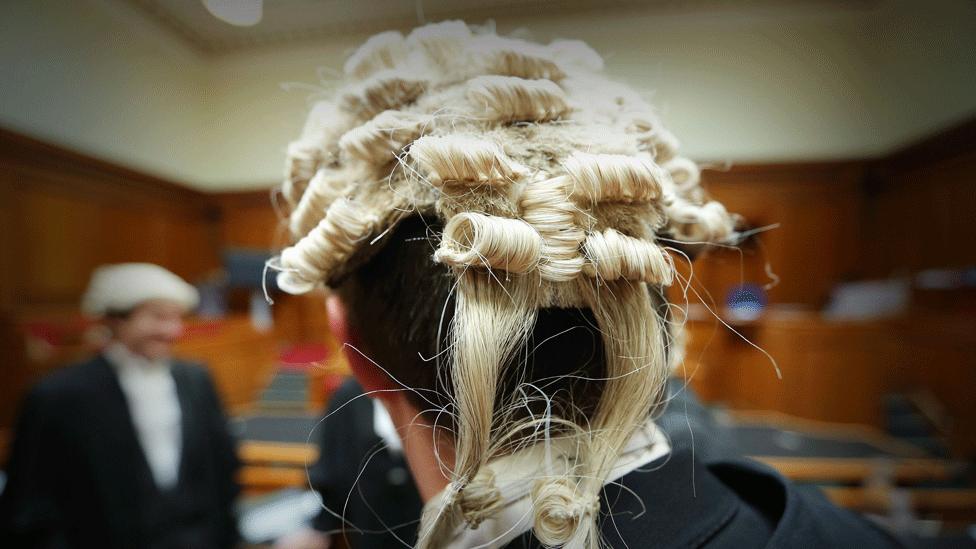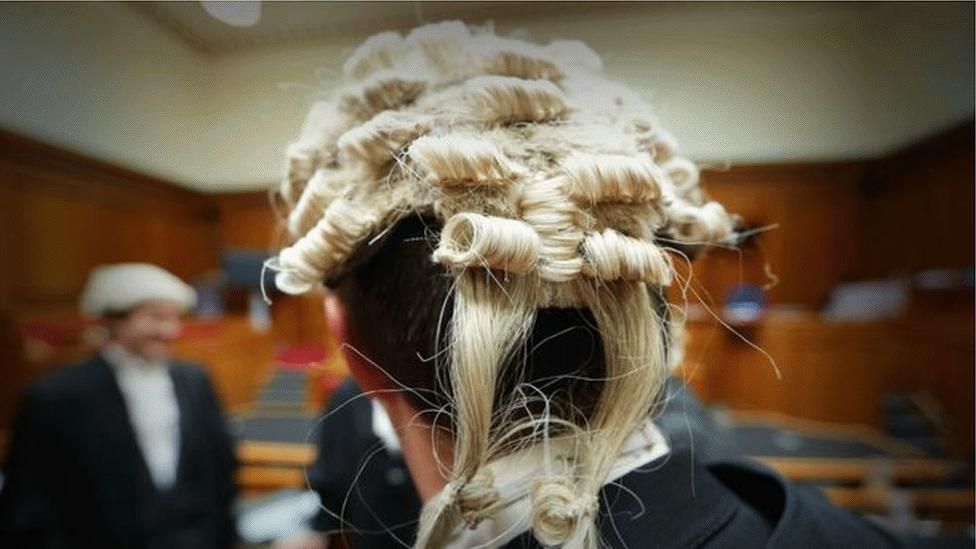Fears over reforms of legal regulation in Scotland
- Published

Lawyers and judges have claimed changes to how Scotland's legal profession is regulated could leave the justice system "open to political abuse".
Plans to reform how the profession is regulated would allow Scottish ministers to have more say over the running of the legal sector.
But senior legal figures have warned the move threatens the sector's long-held independence.
The Scottish government denied this and said it would improve accountability.
Regulation of Scotland's legal profession is currently done by a string of independent bodies, including the Law Society of Scotland and the Faculty of Advocates.
These bodies operate under the independent supervision of the Lord President, the country's most senior judge, currently Lord Carloway.
The Scottish government has introduced a new bill that would allow ministers to review the regulatory performance of these organisations, but also allow new bodies to become regulators.
Scottish ministers argue this will improve accountability and the transparency of decision making.
However, the legal community has issued strong condemnation of the proposals in evidence to Holyrood's Equalities, Human Rights and Civil Justice committee.
The Senators of the College of Justice, which represents judges in the Court of Session and the High Court, told MSPs: "These proposals are a threat to the independence of the legal profession and the judiciary.
"It is of critical constitutional importance that there is a legal profession which is willing and able to stand up for the citizen against the government of the day.
"If the bill is passed in its current form, Scotland will be viewed internationally as a country whose legal system is open to political abuse."

The Court of Session in Edinburgh
The Law Society of Scotland, which is the professional governing body for solicitors, said: "Of greatest concern to us is the desire of the Scottish government to be granted extensive and exceptional new powers of intervention over how legal professionals are regulated.
"These powers, which we have not been able to identify in any other western democracy, risk seriously undermining the rule of the law and the independence of Scotland's legal sector from the state."
The Faculty of Advocates added the "bill contains provisions giving the Scottish ministers very broad powers, not only in making regulations but also allowing interventions in some circumstances".
'Strong and diverse legal profession'
The Scottish government says the proposed changes are about modernising an outdated system and giving greater protections to the public.
The Regulation of Legal Services (Scotland) Bill has provisions to change the way in which complaints about legal services are handled, as well as making it an offence to use the title of "lawyer" with intent to deceive in connection with providing legal services.
A spokeswoman said they had "no intention of changing the vital importance of having an independent legal sector".
She added: "The promotion of an independent, strong and diverse legal profession is enshrined in the bill while providing for a modern regulatory framework to promote competition, innovation and improve the transparency and accountability of legal services regulation, taking into account public and consumer interests.
"We will continue to engage both consumer and legal stakeholders as this legislation proceeds through parliament."
Related topics
- Published23 January 2023

- Published26 April 2023
